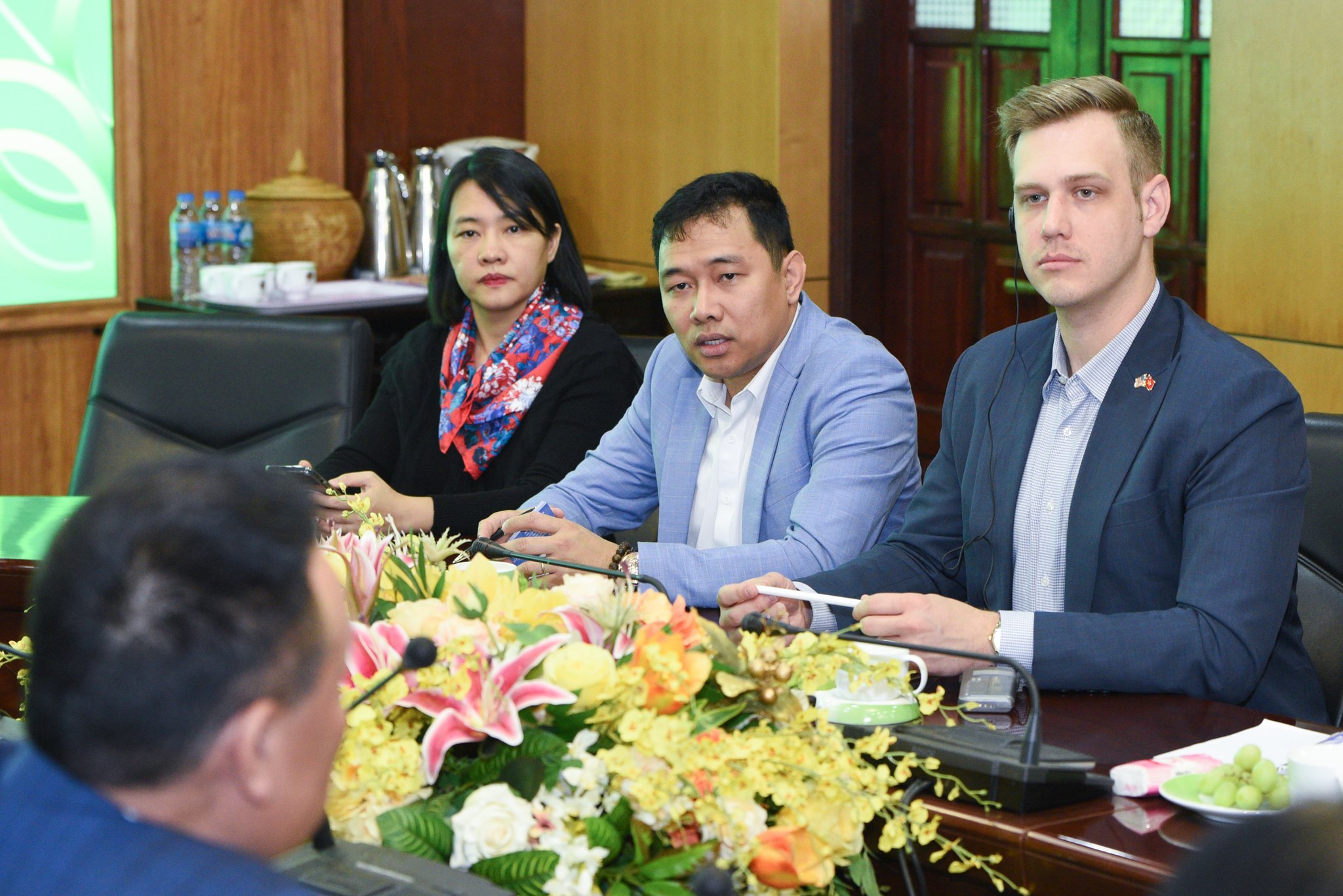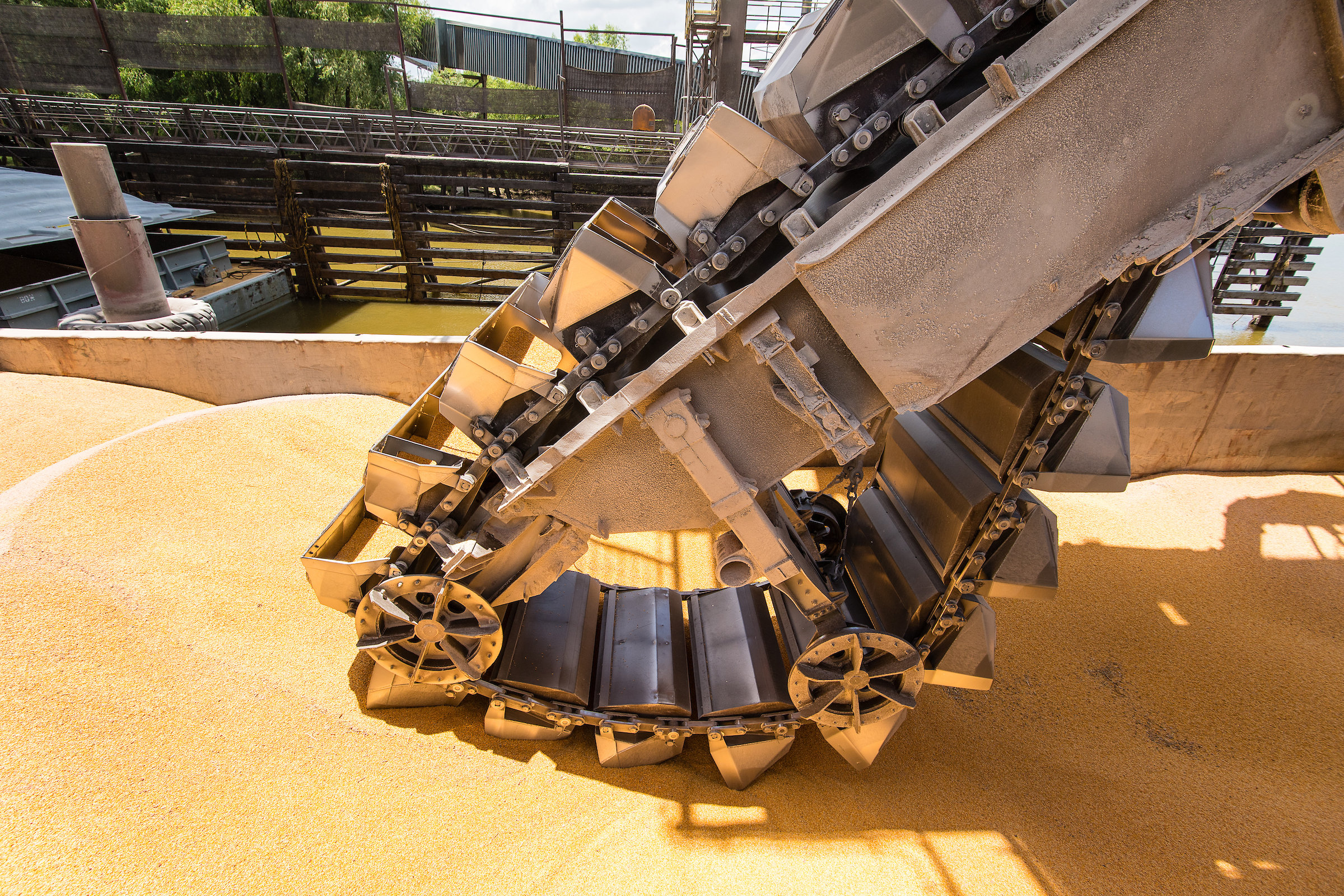May 24, 2025 | 16:22 GMT +7
May 24, 2025 | 16:22 GMT +7
Hotline: 0913.378.918
May 24, 2025 | 16:22 GMT +7
Hotline: 0913.378.918

Mr. Tran Trong Nghia (center), representative of the US Grain Council in Vietnam worked with Dabaco during the recent visit of two US Under Secretary of Agriculture. Photo: Tung Dinh.
Various Vietnamese agricultural organizations, including the Vietnam Feed Association and the Vietnam Association of Seafood Exporters and Producers, have proposed reducing the import duty on soybean meal from 2% to 0%.
If the strategy is approved, it will help to lower feed prices, support animal producers, and cut the already high input costs that are causing problems for agricultural subsectors.
According to a spokesman of the USGC, the program intends to cut consumption prices by opening the market to import products and lowering taxes in order to encourage Vietnamese livestock to become the largest in the area. It also encourages the expansion of animal feed production, allowing the government to meet its economic goals.
Mr. Tran Trong Nghia, the representative of the USGC in Vietnam, shared with Vietnam Agriculture News the situation of some countries in the region imposing taxes on animal feed ingredients: "Malaysia is currently imposing 0% import tax on some imported animal feed ingredients such as corn, soybean meal, distiller's dried grains with solubles" (DDGS). As a consequence, Malaysia has been able to cut manufacturing costs, which has contributed to the country's lower food inflation.
However, other countries like Indonesia, Philippines, and Thailand impose high tariffs on DDGS and import barriers for corn, and they are facing significant food price inflation compared to Vietnam".

The bucket system brings US corn to around the world. Photo: USGC.
Domestic production associations have proposed lowering the tax on soybean meal from 2% to zero in the near future; however, the USGC representative stated that Vietnam should also consider removing non-tariff trade barriers that raise the cost of feed production for some materials used in the production of other feeds in the future.
Mr. Nghia advocated eliminating the necessity for fumigation or allowing fumigation at the destination for DDSG products, which would greatly lower import costs.
Moreover, this person stated that sorghum can be an alternate source of raw materials used in animal feed for Vietnam, but it is subject to an import tax of up to 5%.
Trade between Vietnam and the United States has achieved excellent results in bilateral cooperation in recent years, with a total bilateral turnover of more than USD 123 billion in 2022, a rise of 11% over the same period the previous year, contributing to the Vietnam-US Comprehensive Partnership.
Furthermore, the United States is now one of Vietnam's top commercial partners as well as one of the world's leading export markets.
"We believe that the strategic vision of the two governments, as well as the active coordination and effective implementation of the relevant agencies of Vietnam and the United States, will help to enhance trade between the two countries in many fields of economy, trade, and so on," Mr. Nghia stated.
Translated by Linh Linh

(VAN) In the tranquil wetlands of Van Long, there are quiet souls who guard the forests, nurture the waters, and oversee every bird and troop of langurs as protecting the essence of a living heritage.

(VAN) WWF, GIZ, IUCN, UNDP call for biodiversity conservation and sustainable development must be regarded as a unity in strategies for a green future.

(VAN) On celebration of International Day for Biological Diversity, Deputy Minister Nguyen Quoc Tri called for practical actions to address nature and biodiversity conservation.

(VAN) Dr. Hoang Thi Thanh Nhan – Deputy Director of the Nature and Biodiversity Conservation Agency – highlighted this on the International Day for Biological Diversity, May 22, 2025.
![Ho Chi Minh city adapts to climate change: [2] Accelerating action](https://t.ex-cdn.com/nongnghiepmoitruong.vn/608w/files/chiqk/2025/05/22/4024-4220-bien-doi-khi-hau-1-100626_766.jpg)
(VAN) Clearly recognizing the challenges posed by climate change, Ho Chi Minh city has swiftly shaped its policies and implemented practical solutions to adapt.

(VAN) Rice straw is no longer just a discarded byproduct, but it is becoming a green resource that helps farmers in the Mekong Delta reduce emissions and promote circular, sustainable agriculture.

(VAN) Other Effective Area-based Conservation Measures (OECMs) are solutions that contribute effectively to achieving the goals of the Kunming–Montreal Global Biodiversity Framework.